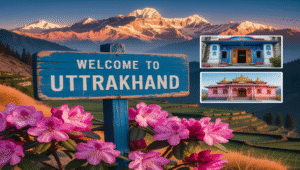From working in the fields of a small village in Sehore to the summit of her dreams, Megha Parmar’s legend tells the story of a young girl whose courage and resilience tower higher than the Everest.
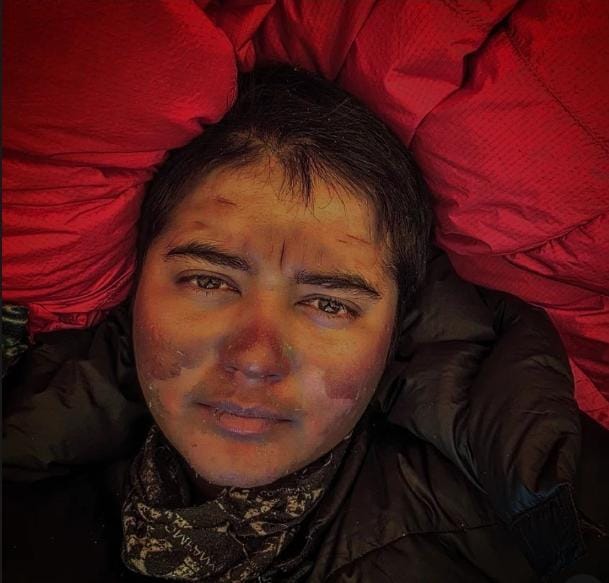
How tall can you be?
How tall can you be? how big can you win? Mount Everest is the answer. How does a young girl, from a remote village in Madhya Pradesh’s Sehore, who had never set foot outside of the traditional patriarchy of India, rise taller the largest mountain in world ?. Her life was centered around fetching water, working in the agricultural fields and cooking for the large family. Her brothers who went to the district college, didn’t like the quality of food and requisitioned for the sister to be sent to stay with them as a cook. Megha stepped out of her humble thatched home and decided to stand taller than the tallest. Without money, no social skills, no one to hold her hand, she crawled though the unthinkable challenges, walked past the failed and the dead and she fell from 90 feet, broke her spine at 3 places, was refused entry into her village and parents looked the other way, was bed ridden for 9 months and weighed nearly 95 kgs. She was told it was all over, it cant be done – the Everest had defeated her; but did it crush her courage? How did Megha roar in the face of the worst adversities and hoisted the Tri-colour on the tallest symbol of formidable fear called the Everest. But was it, still, that simple ? These were some, among numerous thoughts, racing my mind when I met Megha.
Dr.Ashish kaul
Q.01: Megha, when you close your eyes and think back to your childhood in Sehore, what comes to mind first?
Megha: [settling back with a nostalgic smile] You know, I see my father’s weathered hands working the fields, and I remember thinking how small our world seemed then. I completed my schooling from Saraswati Shishu Vidya Mandir in the village, graduated from Government Girls College. We were thirteen sisters in the family can you imagine the chaos and love in that household? Back then, the highest mountain I knew was the small hill behind our village where we’d go to fetch water.
Q.02: That’s quite a leap from village hills to the world’s tallest peak. What was that turning point when mountains started calling your name?
Megha: [laughing softly] It’s funny how destiny works, isn’t it? I was volunteering with NSS during my college days, and one day I read a news article about two boys from Madhya Pradesh who climbed Mt Everest. That’s when I felt the mountains calling me. I got even more excited to know that no woman from my state had ever achieved this feat. It was like someone had lit a fire inside me. I thought, “If they can do it, why can’t I be the first woman to do it?”
Q.03: Tell me about those early days of preparation. How did a farmer’s daughter even begin to dream of Everest?
Megha: [eyes brightening] Oh, those were beautiful, terrifying days! I took my first step by enrolling in basic training from Atal Bihari Vajpayee Institute of Mountaineering, then completed advance mountaineering training from The Himalayan Mountaineering Institute in Darjeeling. I remember calling home after my first mountain training, my voice trembling with excitement, telling my family about this crazy dream. They thought I’d lost my mind! [chuckles]
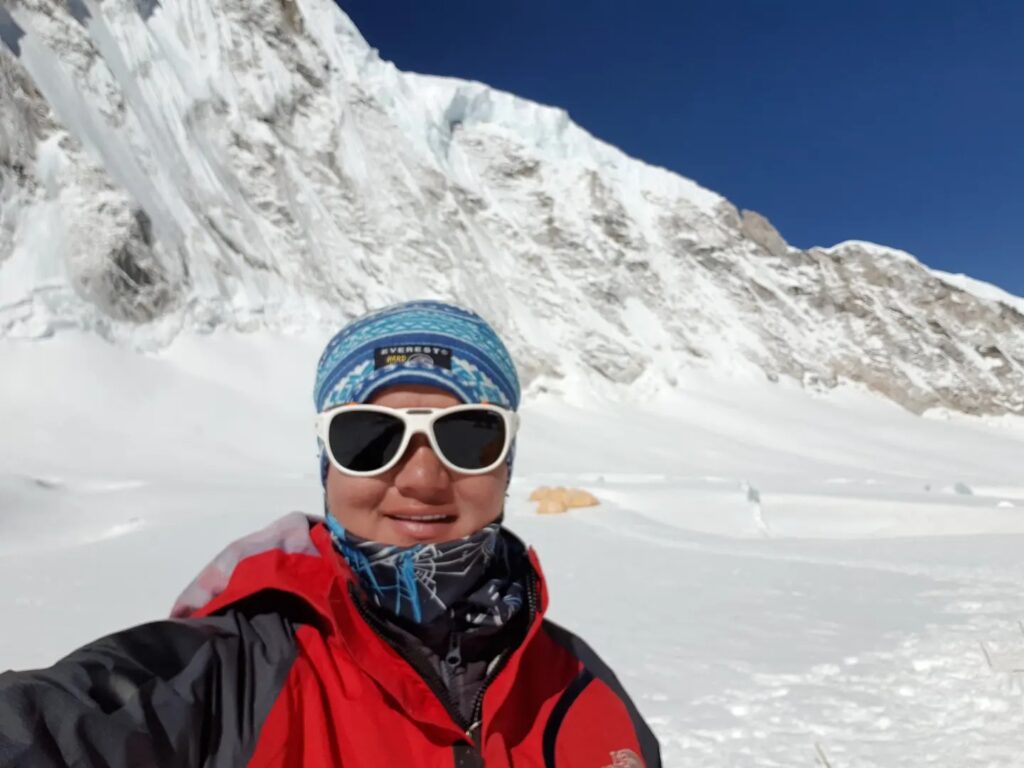
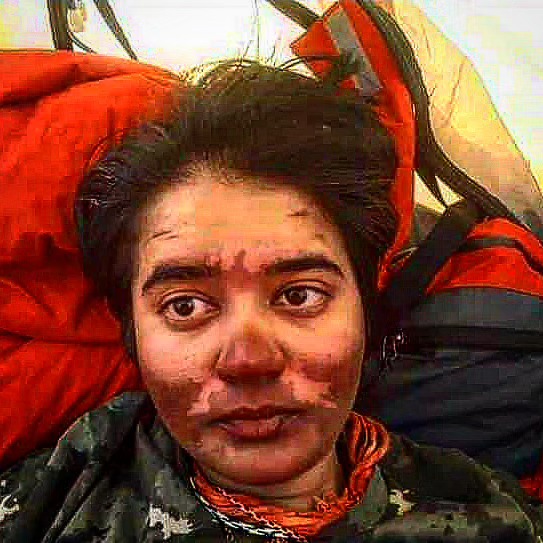
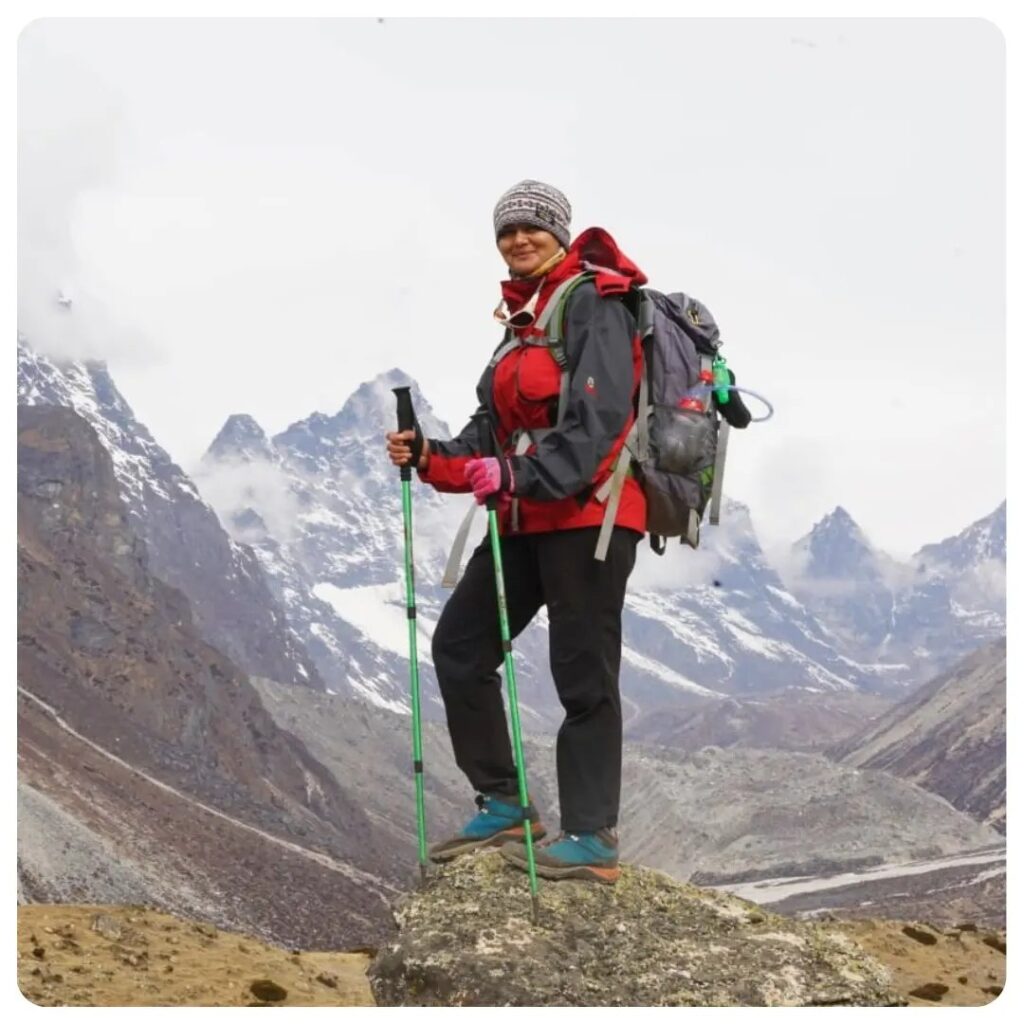
Q.04: During your training, did you find a mentor or guru who shaped your mountaineering journey?
Megha: [nodding thoughtfully] You know, mountaineering isn’t just about physical strength it’s about mental fortitude, technique, and wisdom that can only be passed down from guru to shishya. At the Himalayan Mountaineering Institute, I was blessed to train under some incredible instructors who became more than teachers they became my guiding lights. They taught me that mountains don’t just test your body; they reveal your character. My trainers there didn’t just teach me to climb; they taught me to respect the mountains, to understand weather patterns, to read the language of ice and snow. Even today, when I face a difficult decision on any peak, I hear their voices guiding me. The relationship between a mountaineer and their guru is sacred they literally hold your life in their hands and teach you to hold your own life responsibly.
Q.05: Speaking of family, how did they react to your unconventional choice?
Megha: [pausing thoughtfully] Initially, there was scepticism, confusion, even fear. I proudly say I’m a farmer’s daughter. In our family, we are 13 sisters in total. My parents had never heard of mountaineering as a career. They worried about safety, about society’s judgment. But you know what melted their hearts? The day I returned from my first successful climb, when I first climbed Mount Everest, my father was carried on the shoulders by the villagers and the entire village was turned around. It was a proud moment for me. That image still gives me goosebumps.
Let’s talk about 2018 your first attempt at Everest. That must have been devastating.
Megha: [taking a deep breath, her voice becoming more serious] 2018 yes, that was my dark night of the soul. I had trained for years, raised funds through sheer determination, and then… failure. Not just failure, but injury too. I broke my spine during climbing for the first time. I remember lying in that hospital bed, wondering if my dream had died with my broken body. The physical pain was nothing compared to the emotional devastation.
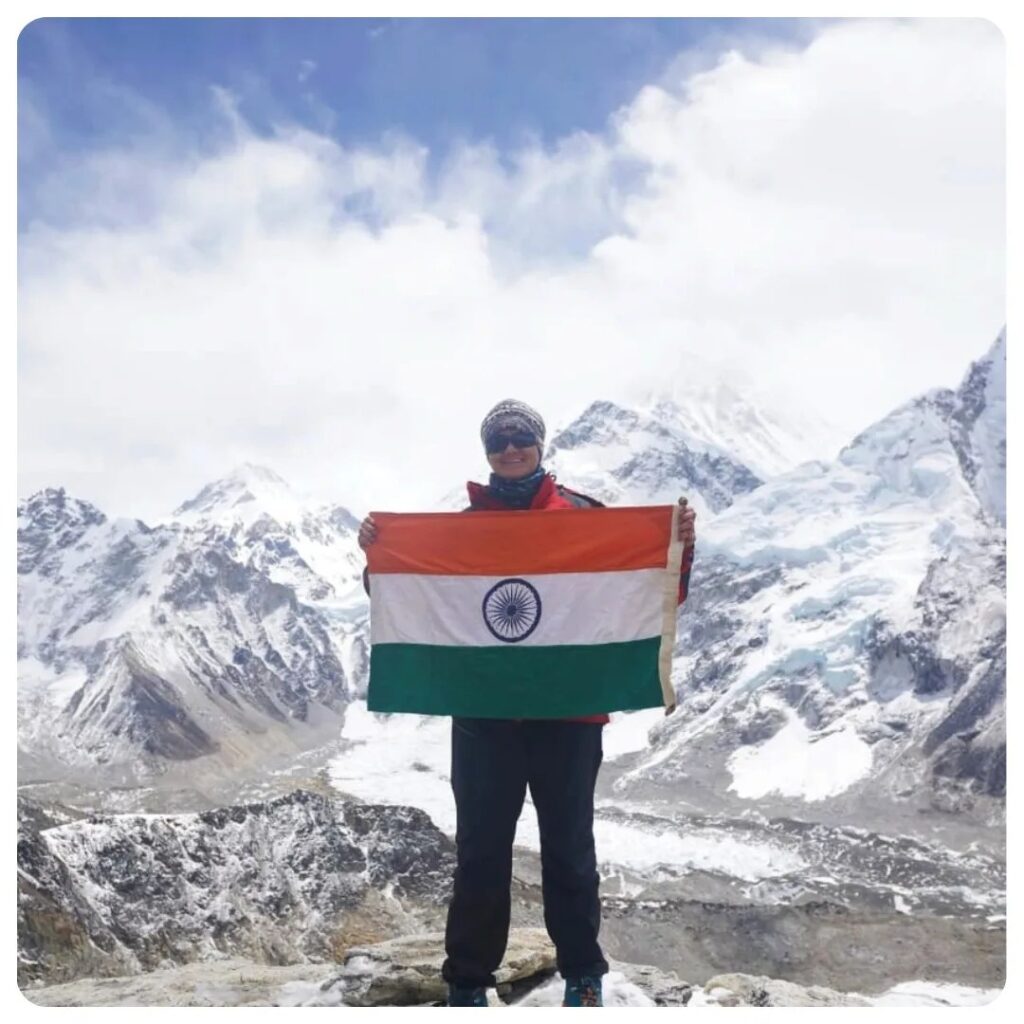
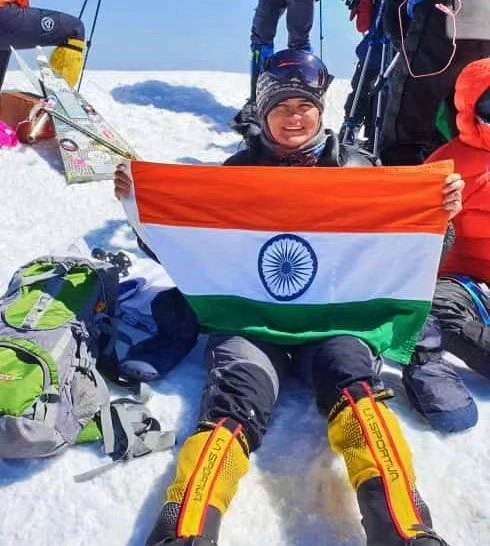
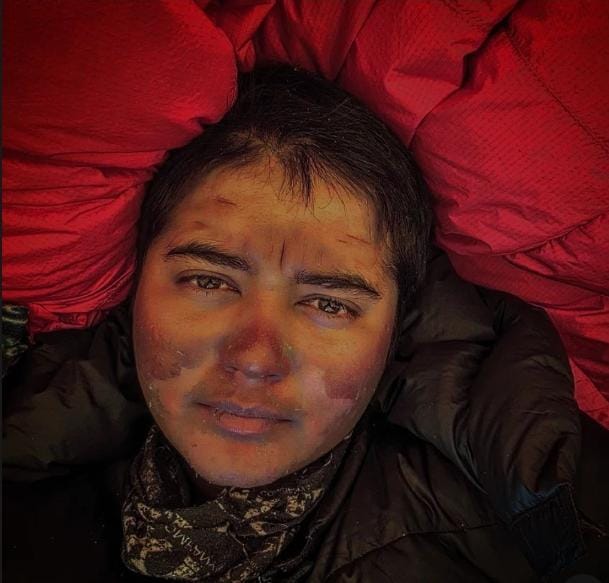
Q.06: How did you find the strength to attempt Everest again?
Megha: [voice gaining strength] You know, sometimes our greatest failures become our greatest teachers. Those months of recovery, of watching others achieve what I couldn’t it forged something unbreakable in me. I realized that giving up would mean betraying not just myself, but every girl in rural India who dared to dream beyond societal boundaries. I live by the motto, “believe in yourself, transform yourself”. I had to transform my pain into power.
Q.07: And then came May 22, 2019. Take me to that moment at the summit.
Megha: [eyes glistening with emotion] Standing at the summit the earth appears round, and holding the Indian tricolour in your hand in -47 degrees is an absolutely incredible feeling. It feels different, you feel limitless. Being on the world’s tallest peak, you feel like you’re on top of the world quite literally! But you know what overwhelmed me most? I thought of every girl back home who had been told her dreams were too big, every parent who thought their daughter couldn’t achieve the impossible. In that moment, I felt I was carrying all their dreams with me.
Q.08: How has life changed since becoming “Megha Parmar, the Everest climber”?
Megha: [smiling but with a hint of seriousness] When you achieve something big, people recognize you, but it’s also a huge responsibility. So many young people began to follow in my footsteps. I became extremely aware about my actions. I had to make certain changes to my lifestyle, as more and more young people started to look up to me. It’s beautiful but overwhelming. Sometimes I miss the simplicity of being just Megha from the village.
Q.09: You’ve been involved in advocacy work, particularly with the Beti Bachao Beti Padhao campaign. How important is this to you?
Megha: [leaning forward passionately] This is my heart’s work! Seeing boys and girls on equal footing makes me the happiest. I advocate for gender-based issues, highlighting difficulties faced by women in rural areas. I work on menstrual hygiene, women’s education because if there’s no education, they’ll simply be married off. Every time I speak to young girls, I see myself that confusion, that fear, but also that spark of possibility.
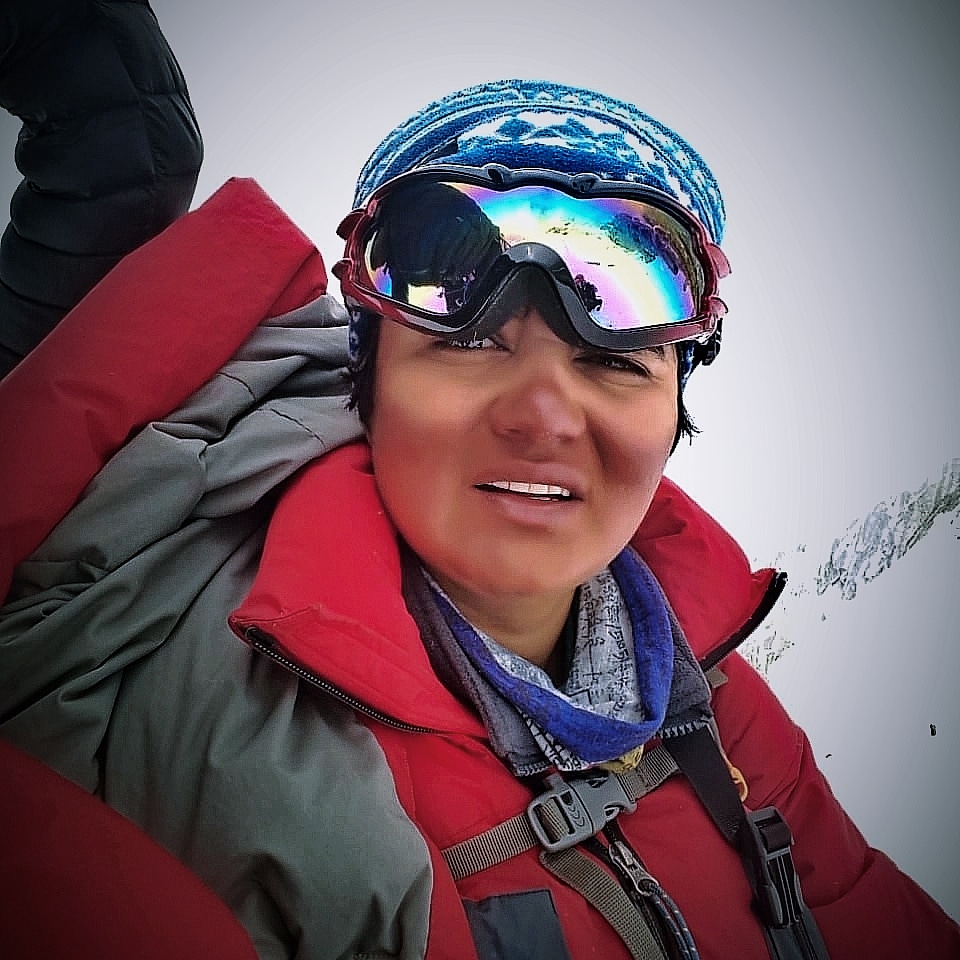
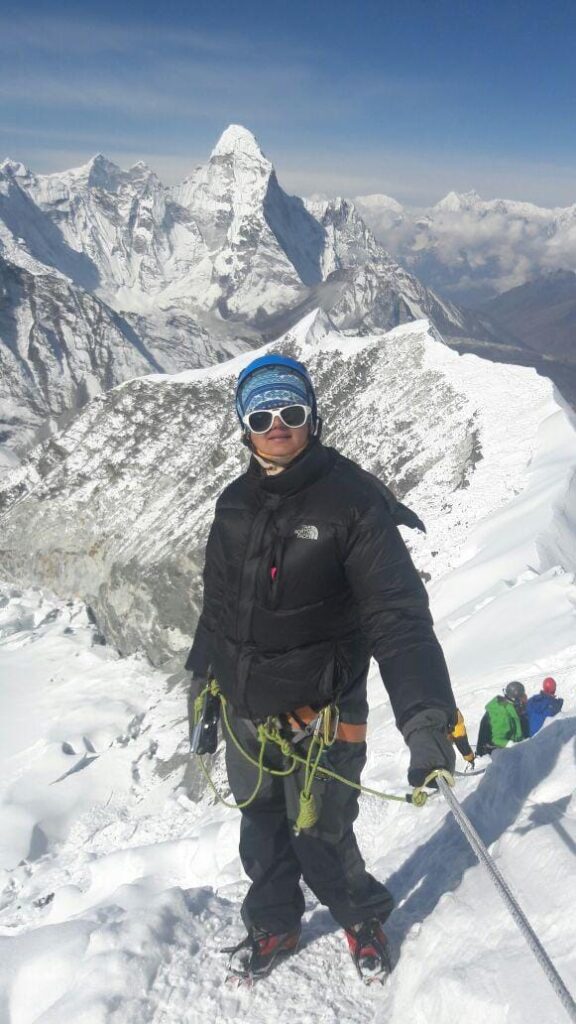
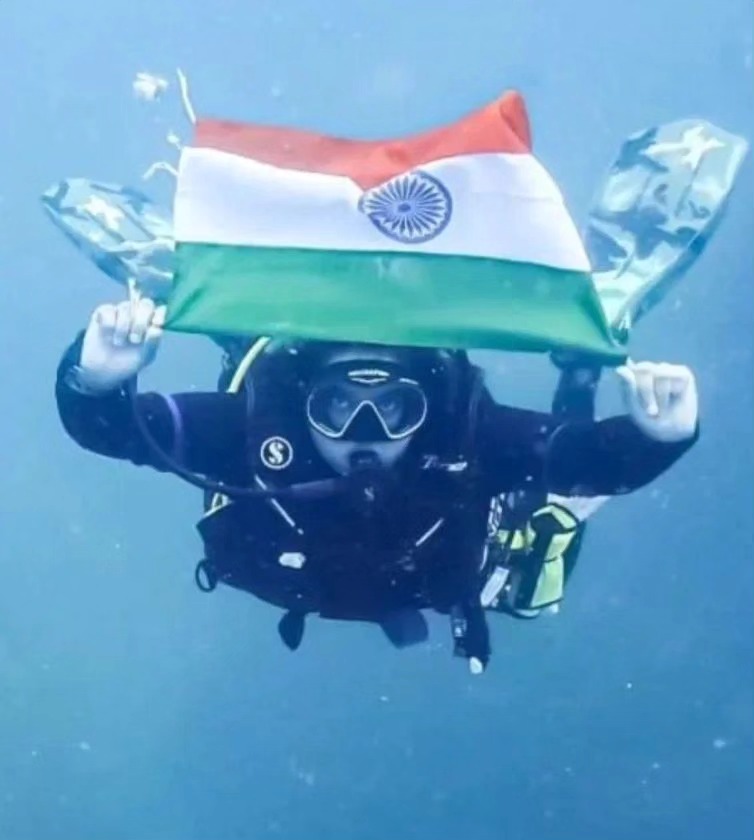
Q.10: There have been some recent political developments regarding your brand ambassadorship. How did that affect you?
Megha: [thoughtfully] I was removed as the brand ambassador of the ‘Beti Bachao, Beti Padhao’ campaign by the Women and Child Development department, barely two days after I joined the Congress. It was disappointing, yes, but it doesn’t change my commitment to the cause. Politics may change, but my dedication to empowering women remains constant.
Q.11 What about a film? Has Hollywood or Bollywood come knocking?
Megha: [laughing] You know, there have been some preliminary discussions. I think stories like mine resonate because they’re about human spirit, not just adventure. If a film gets made, I’d want it to inspire especially the rural youth to show them that no dream is too big if you’re willing to work for it. But right now, I’m focused on creating more stories worth telling!
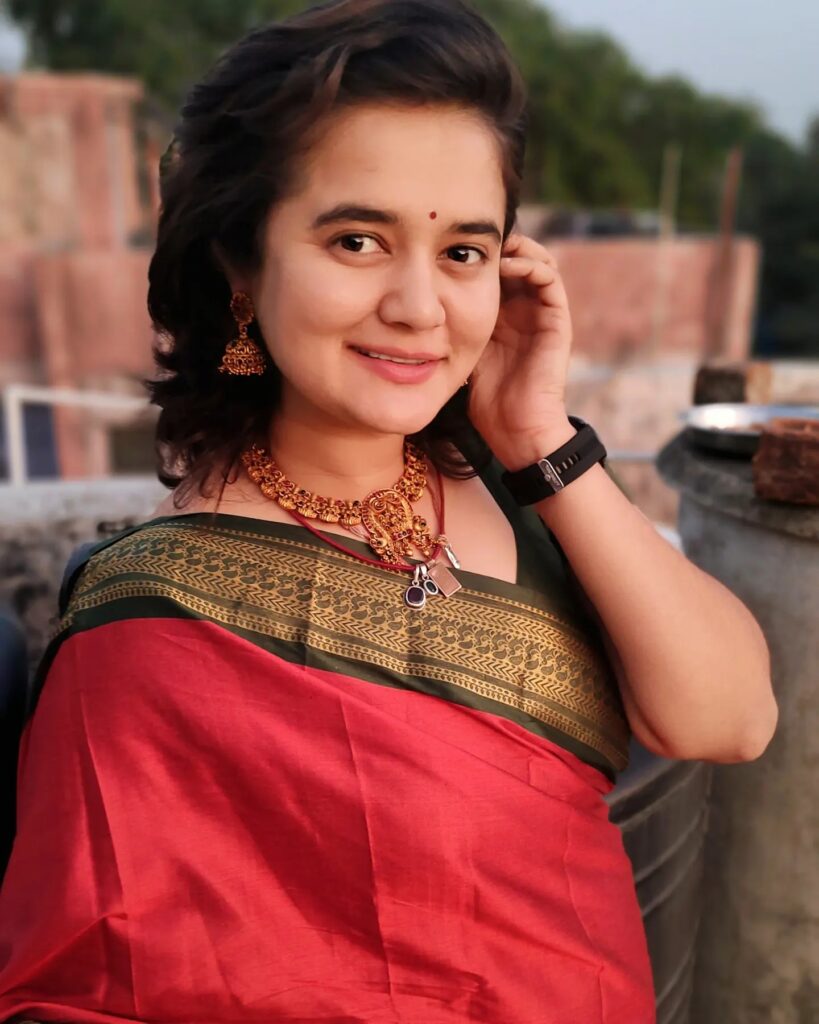
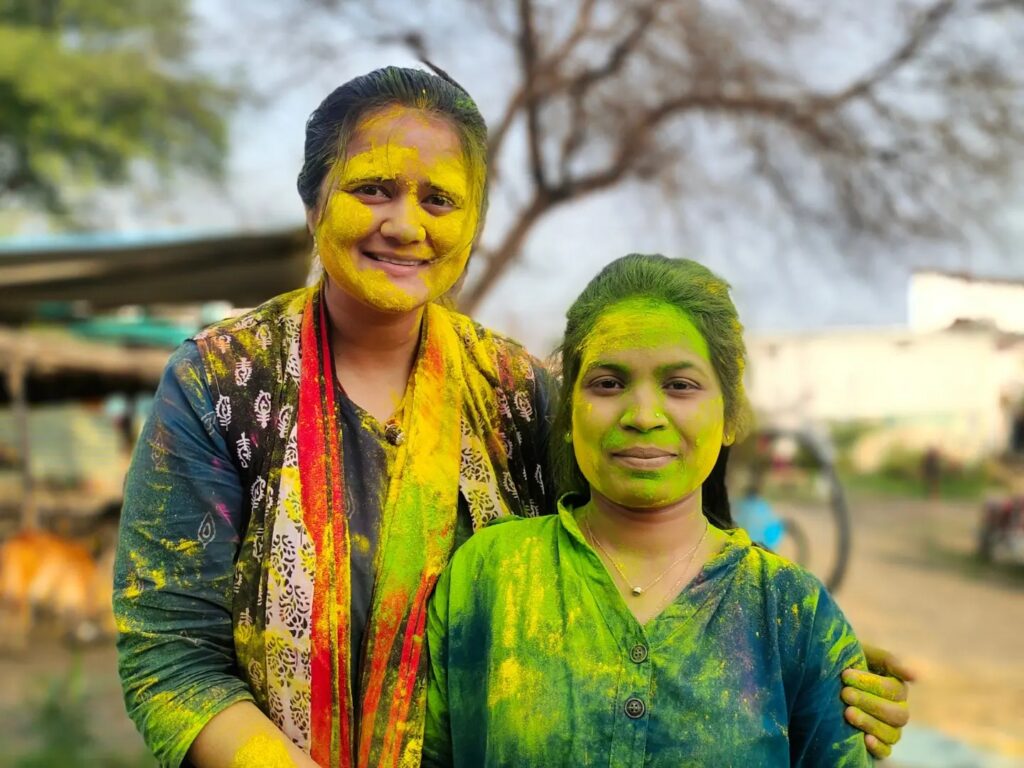
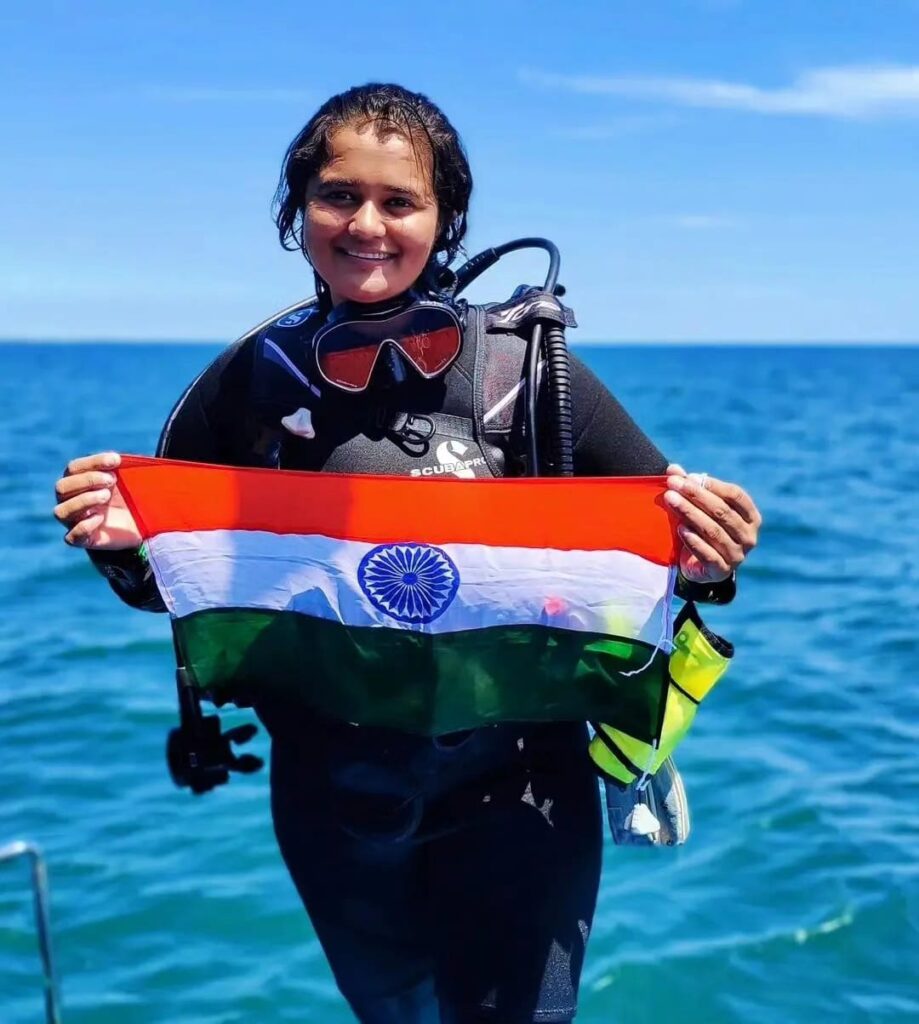
Q.12: Speaking of creating stories, what’s next for Megha Parmar?
Megha: I’ve scaled the highest mountains of four other continents and set a new world record for technical diving too. But my biggest summit is yet to be climbed rural India’s perspective on what their daughters can achieve. I’m working on establishing mountaineering training centers in rural areas, creating scholarship programs. My success has no meaning if I don’t go back to my village and help others fulfil their dreams too.
Q.13: How do people in your village treat you now?
Megha: [with warmth] They still call me the same name my grandmother gave me, still expect me to help with village functions! [laughs] But there’s pride now, and more importantly, hope. Mothers point to me and tell their daughters, “See, she’s from our soil.” That’s worth more than any award.
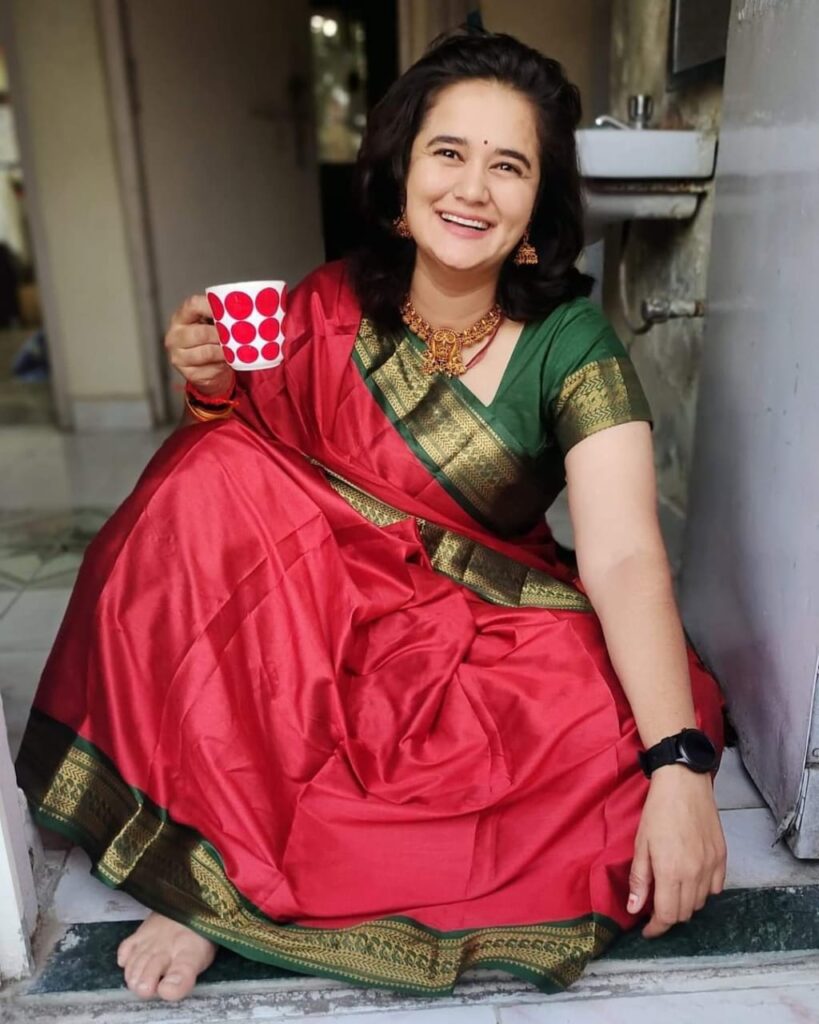
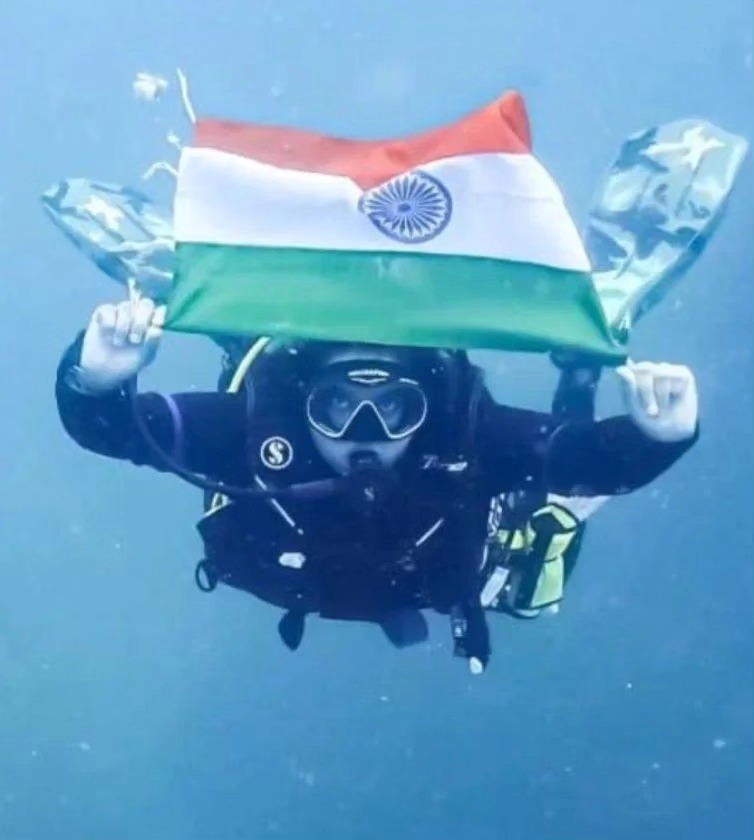
Q.14: What’s your message to parents who think their daughters’ dreams are too big?
Megha: [voice filled with conviction] We not only have the power to change ourselves but also to change the world around us. The circumstances will be difficult, but try to make the most out of it and run towards your dreams. To parents I say your daughter’s dreams aren’t too big; perhaps your vision of what’s possible for her has been too small. Support her, and watch her move mountains literally and figuratively.
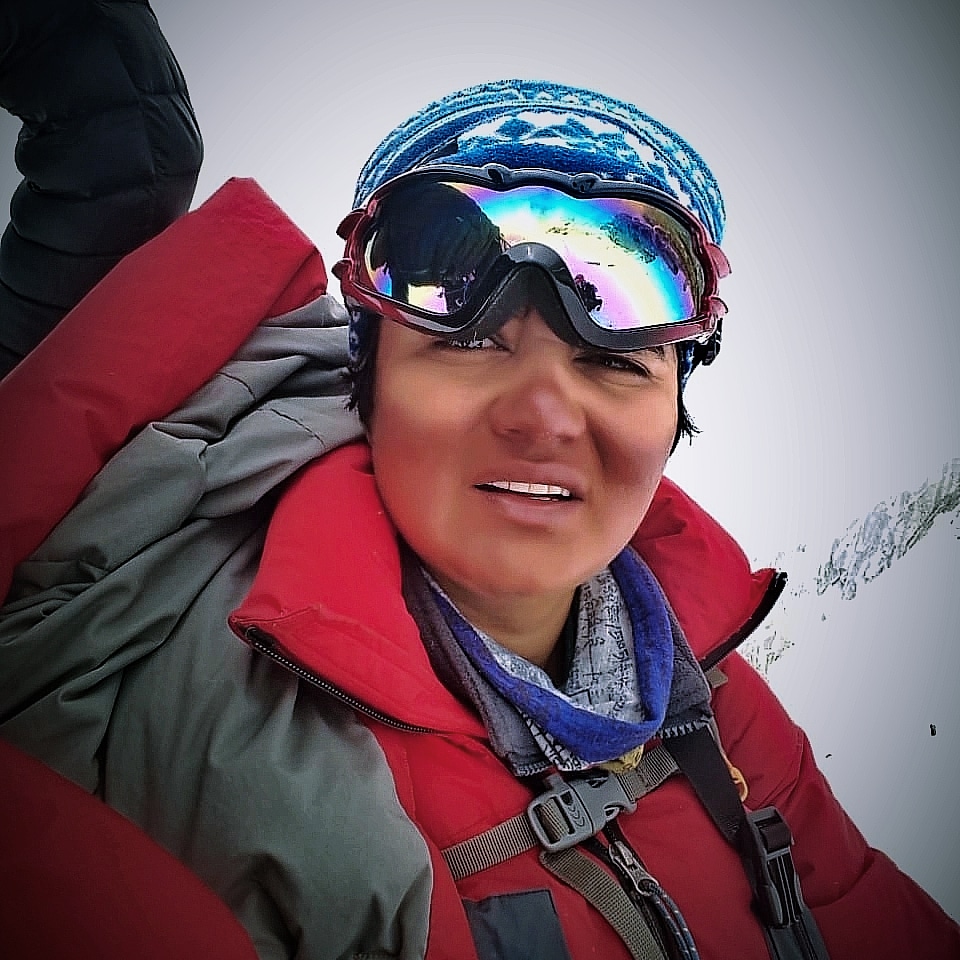

Q.15: Speaking of young dreamers, what would you specifically advise to young girls who want to pursue mountaineering?
Megha: [leaning forward with passionate intensity] First, understand that mountaineering is not just adventure it’s a discipline that will transform every aspect of your life. Start with local hills, join trekking groups, build your physical fitness gradually. Don’t rush to Everest; respect the learning curve. I’ve started training girls from lower-middle-class families because I believe financial background shouldn’t limit dreams.
My advice is practical: start with basic mountaineering courses, learn to read weather patterns, master rope techniques. But more importantly, develop mental resilience. Mountains will test your spirit more than your muscles. Find a good guru someone who values safety over speed records. I take girls to international peaks now because I want them to see that the world is within their reach.
Remember, every time you doubt yourself, every time someone says ‘girls can’t do this,’ use that as fuel. The mountain doesn’t care about your gender it only responds to your preparation, your courage, and your respect for its power. Train hard, dream bigger, and never let anyone make you smaller than the peaks you’re destined to climb.
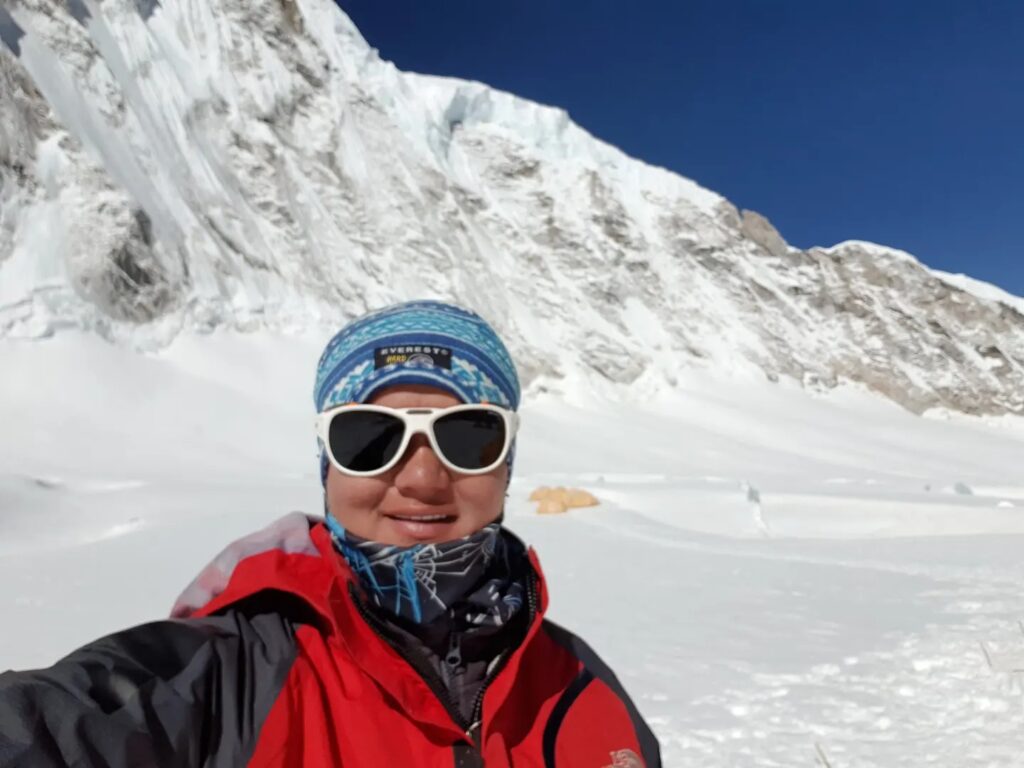
Q.16: Any final thoughts as we wrap up?
Megha: [standing up, looking out the window] You know, people often ask me about the view from Everest’s summit. But the most beautiful view isn’t from up there it’s looking back and seeing the trail of inspired lives you’ve left behind. Every girl who dares to dream bigger because of my story, every parent who believes in their daughter’s potential, every boy who learns to see girls as equals that’s the real summit. Meaning of success is to be connected to your roots, and my roots run deep into the soil of rural India, where dreams are just beginning to take flight.
[As our conversation ends, Megha’s phone buzzes with messages from young mountaineers seeking guidance, a reminder that her greatest adventure isn’t behind her it’s in the lives she continues to transform, one dream at a time. Like me, Megha’s journey from that small village was not to fight, the mountain wasn’t her enemy, it was her throne. Her life symbolizes the journey to conquer what rightfully belongs to every girl in every village.]


